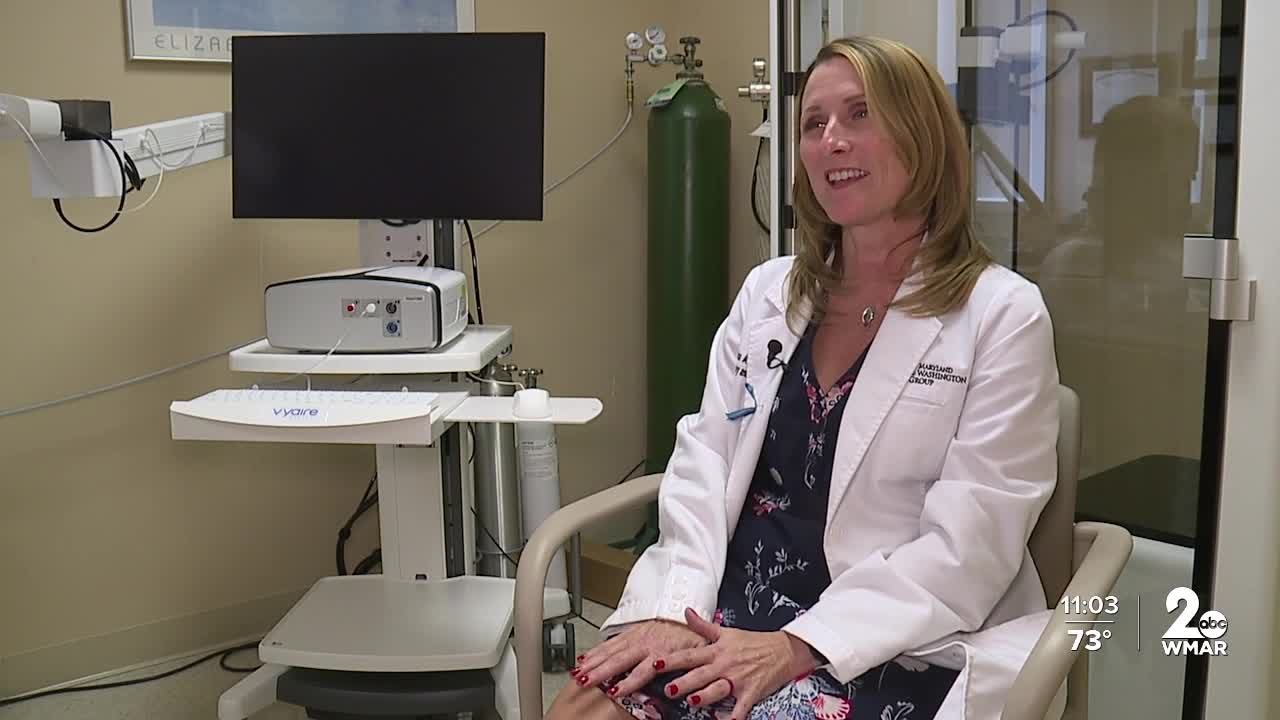Spending time outdoors lately may have you feeling a strain on your lungs. These high temps and humid air aren't the most ideal conditions and could cause respiratory issues.
This summer heat just might take your breath away. That's according to UM Baltimore Washington Medical Center Pulmonary Nurse Practitioner Katrina Roux-Bernstein. She says as those temperatures rise, the quality of air declines leaving people at risk for respiratory problems.
"Typically, our patients have issues in the summer because of stagnant air, pollution increased traffic and those kinds of things bother our patients,” said Roux-Bernstein.
This summer particularly adds a layer to the risk with the Canadian wildfires.
"Those particles that we're breathing in can get into the deep parts of the lungs and can cause exacerbations, but they also can become infections," said Roux-Bernstein.
She says people with respiratory issues like asthma and COPD are the most susceptible to the effects of this weather. Which can cause congestion, coughing, sore throat and shortness of breath.
That's especially true for Rhonda Lynn who lives in Cherry Hill. She says what started as something she thought was an allergy issue turned into much more.
"I woke up one night and couldn't breathe actually I couldn't breathe. My ears was inflamed and my nose was inflamed. At the time I actually didn't know what was going on,” said Lynn.
After meeting with a doctor she found out it was from the poor air quality that day.
Katrina says she's even seen a higher number of patients this year due to these dangerous air conditions.
"I don't think patients have realized it either, I don't think they took that air quality and equated the two. They thought oh I just had an exacerbation and I asked them when and it happened to be coinciding with when we had the poor air quality days,” said Roux-Bernstein.
Roux- Bernstein recommends checking the air quality every day, and if you do leave the house when it's poor, protect your lungs. Especially when the air quality index is in the red, purple or orange zones.
"So you'll need to wear a mask and the mask and the mask we're asking people to wear is the k-95 or the n-95. Surgical masks work ok but they don't quite filter out those fine particles especially from the wildfires,” said Roux-Bernstein.




